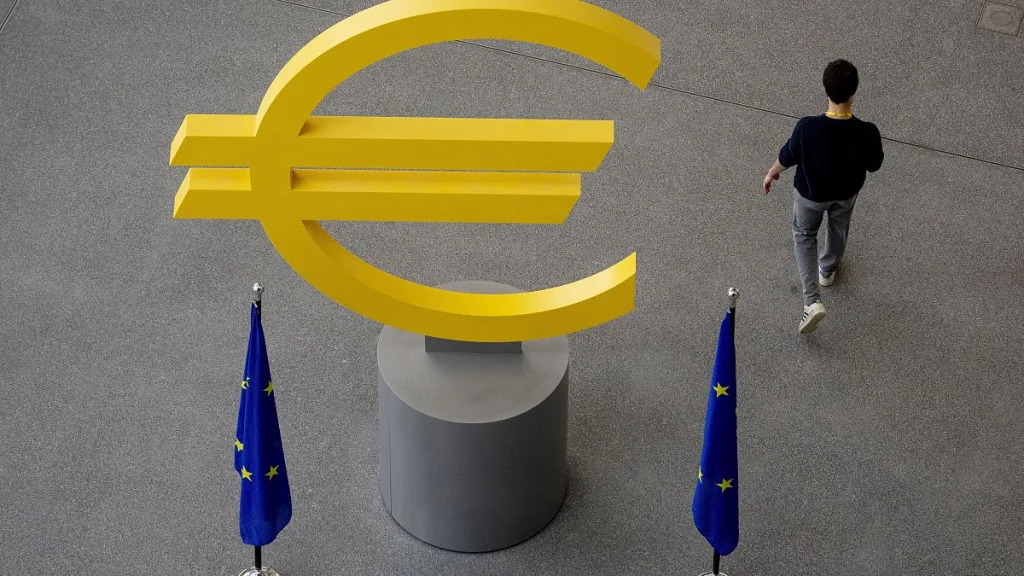High interest rates have enabled banks to bolster their cash reserves for potential acquisitions, although national concerns may be hindering cross-border deals across Europe.
Europe’s banking sector is buzzing with takeover discussions.
At the forefront is Italy’s UniCredit, led by Andrea Orcel, which is currently expanding its investment in Germany’s Commerzbank after enhancing its presence in Romania.
Simultaneously, France’s BNP Paribas is casting its eyes on the insurer AXA, while BBVA is actively pursuing its ambitious offer for Sabadell.
In summary, banking mergers are currently “hot,” according to Hyder Jumabhoy, an M&A partner at White & Case. The outlook for 2025 appears to be even more promising, with Jumabhoy asserting that they will be “red hot.”
What Fuels the Current M&A Frenzy?
Following the 2008 financial crisis, mergers and acquisitions in the eurozone’s banking sphere experienced a significant slowdown.
For a time, the post-crisis landscape curtailed banks’ tendencies toward aggressive expansion, constrained by stricter regulations and economic conditions.
From the decade leading up to the crisis to the period between 2008 and 2020, banking M&A activity plummeted by approximately two-thirds in terms of asset transfers.
While regulatory environments remain stringent, the rise in interest rates has emerged as a crucial factor stimulating an increase in deals.
High lending costs over recent years have empowered banks to generate substantial profits, ultimately amplifying their interest in acquisitions.
Moreover, the withdrawal of state support from previously rescued institutions reflects this trend. The Italian government, for instance, is divesting its stake in MPS, and the UK is offloading its interests in NatWest.
Furthermore, the recent decrease in borrowing costs is enhancing interest in M&A as banks seek to diversify their revenue streams, an essential strategy as consumer banking behaviors evolve.
According to Hyder Jumabhoy, “Customers no longer just want one product; they expect to access multiple offerings.”
This shift necessitates that major banks operate multiple brands under one umbrella, encouraging mergers that facilitate expertise sharing and improved consumer benefits, provided the market retains healthy competition.
Challenges to Cross-Border Mergers
Forming banking giants can significantly enhance the eurozone’s competitiveness, positioning these lenders to invest in innovation effectively.
“Scale is critical for banks to compete on a global stage,” noted Marco Troiano, head of financial institutions at Scope Ratings. “For investment banking, having a substantial balance sheet is vital for managing risks.”
Despite the potential advantages, a domestic-centric mindset and resistance to cross-border mergers are identified as significant hindrances to banking expansion.
Data from the ECB indicates that between 1999 and 2020, approximately 80% of all completed banking M&A transactions in the euro area occurred within national borders.
This preference for “national champions” is evident in the deals currently garnering attention. For instance, German Chancellor Olaf Scholz has expressed his disapproval of UniCredit’s advance on Commerzbank, stating, “Unfriendly attacks and hostile takeovers are not conducive to banks.”
In contrast, French President Emmanuel Macron has shown support for international mergers, advocating for financial consolidation among Europeans.
During the “Choose France” summit, Macron emphasized the necessity of such consolidation and stated, “Dealing as Europeans requires consolidation among Europeans.”
However, even with political endorsement, cross-border transactions encounter bureaucratic challenges, as EU proposals like the common deposit scheme are progressing slowly.
Addressing Risk Concerns
It is vital to prioritize stability when forging major cross-border banks, as emphasized by Thierry Philipponnat, chief economist at Finance Watch.
According to him, international combinations might result in banks deemed “too big to fail” (TBTF), posing a risk to broader economic stability.
He cautioned, “Banks operate globally during prosperity but are saved nationally during downturns,” referencing former Bank of England Governor Mervyn King’s assertion.
The efficiency of European banks in managing risk remains a debated topic.
Marco Troiano highlighted, “Mergers are subject to rigorous regulation, and banks maintain considerable liquidity with numerous safeguards in place.” He also mentioned that M&A could augment stability by distributing risk more evenly across different nations.
Some argue that Europe’s cautious approach may place it at a competitive disadvantage against international rivals.
U.S. banks are preparing for a potential deregulation wave under a second Trump presidency, which might trigger a surge in merger activities. Meanwhile, European banks could also experience a significant spurt of consolidation soon.
Hyder Jumabhoy noted, “Larger deals are currently under negotiation.” He anticipates that major pan-European consolidations will likely emerge in the first half of the coming year.
Photo credit & article inspired by: Euronews



